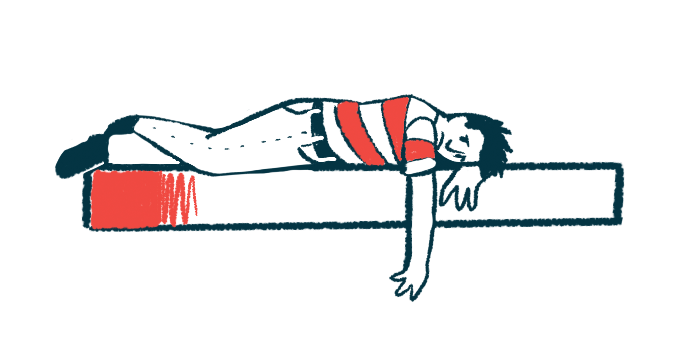Psychiatric medications linked to increased ALS risk, worse outcomes
Anxiolytics, hypnotics or sedatives, antidepressants tied to higher diagnosis risk

People prescribed common psychiatric medications had a higher risk of developing amyotrophic lateral sclerosis (ALS) and saw worse outcomes after a diagnosis, with shorter survival and faster functional decline, a study in Sweden finds.
Taking anxiolytics for anxiety, hypnotics or sedatives to help sleep or induce calm, or antidepressants to treat depression were linked to as much as a 34% higher risk of being diagnosed with ALS. The link doesn’t prove the medications cause ALS, but may indicate that psychiatric conditions are among the earliest signs of ALS, said the study’s researchers, who called for more work to clarify the association.
“These findings suggest a potential link between psychiatric medications, or their indications, and the risk and progression of ALS,” the researchers wrote in the study, “Use of Common Psychiatric Medications and Risk and Prognosis of Amyotrophic Lateral Sclerosis,” which was published in JAMA Network Open.
While ALS is best known for a loss of muscle control arising from damage to the nerve cells that control movement, many patients see mental health problems, especially after a diagnosis, perhaps as an emotional response to being diagnosed.
People with psychiatric disorders may have a higher risk of developing ALS later in life, studies suggest. This has led the researchers to explore if being prescribed psychiatric medications is linked not only to an increased risk of ALS, but also to the rate at which the disease progresses after a diagnosis.
Psychiatric medicines and ALS risk
The study included data from 1,057 adults with ALS who were matched with 5,281 adults of a similar age and sex, who didn’t have ALS. Their mean age was 67.5 and just over half (53.1%) were men. Two other control groups of siblings and spouses of ALS patients were added to account for confounding genetic or environmental factors.
At the time of diagnosis, the average ALS Functional Rating Scale–Revised (ALSFRS-R) score was 36.1. This tool measures physical function on a scale from 0 to 48, with higher scores indicating better function.
Because it took about a year to be diagnosed, researchers examined the use of psychiatric medications more than one year before a diagnosis to avoid capturing medications for early symptoms of ALS. To be counted, people had to have filled at least two prescriptions to ensure they were actually taking the medications.
People who used anxiolytics more than a year before their diagnosis had a 34% higher risk of developing ALS, results showed. Those taking hypnotics or sedatives had a 21% higher risk and the risk was 26% higher with antidepressants. The results were similar when comparing patients with their spouses or siblings, but the association between hypnotics and sedatives and the risk of ALS lost significance in this analysis.
Patients who’d used psychiatric medications before a diagnosis were more likely to be female and had lower ALSFRS-R scores at their diagnosis, meaning worse function. They were followed for a median of 1.33 years after diagnosis, during which time 1,024 either died or needed invasive ventilation to help with breathing.
After a diagnosis, those with prior use of anxiolytics had a 52% higher risk of death. For those who’d used antidepressants, the risk of death was increased by 72%. Taking psychiatric medications was also linked to faster functional decline, especially in patients prescribed antidepressants. No significant association was observed after accounting for confounding factors for the other two classes of psychiatric medications.
“Use of anxiolytics, hypnotics and sedatives, or antidepressants was associated with a higher future risk of ALS diagnosis. Pre-diagnostic use of some of these medications was also associated with shorter survival and faster functional decline among patients with ALS,” the researchers wrote.







